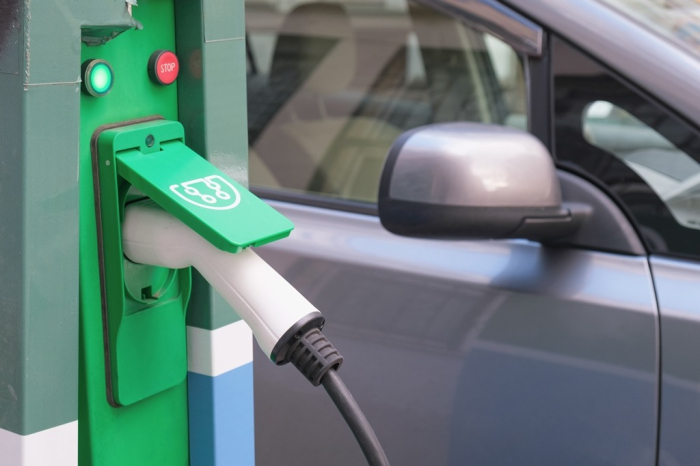Batteries
Lotte Chem develops tech to improve EV battery durability
The technology will cut next-gen battery production costs as it allows the industry to use existing lithium-ion cell facilities
By Nov 28, 2023 (Gmt+09:00)
2
Min read
Most Read
LG Chem to sell water filter business to Glenwood PE for $692 million


KT&G eyes overseas M&A after rejecting activist fund's offer


Kyobo Life poised to buy Japan’s SBI Group-owned savings bank


StockX in merger talks with Naver’s online reseller Kream


Meritz backs half of ex-manager’s $210 mn hedge fund



Lotte Chemical Corp. said on Tuesday it has developed a technology to improve the durability of electric vehicle cell materials by enhancing the stability of anodes used for the next-generation batteries for the first time in South Korea as the country’s major petrochemical producer aims to expand its presence in the eco-friendly mobility sector.
Lotte Chemical said it completed a patent application in South Korea for the technology to produce coating materials for separators based on solid polymer electrolytes, which cover separators of lithium metal batteries with functional materials to improve cells’ durability.
“We will actively target the global battery materials market to take the lead in the related sectors by securing core battery technologies,” said Lotte Chemical Chief Technology Officer Hwang Min Jae in a statement.
The company has been working with US battery startup Soelect Inc. to develop the technology since they signed a cooperation deal in 2021. They agreed to consider investing $200 million last year for a lithium metal anode production facility by 2025.
TO IMPROVE DURABILITY BY MORE THAN 30%
The new technology is expected to improve the durability of separators by more than 30% compared with the existing battery permeable membrane without coating, the petrochemical unit of South Korea’s sixth-largest conglomerate Lotte Group said.
The technology is also predicted to enhance anodes’ stability by curbing lithium dendrites, which can form on the surface of the lithium metal anode during charge and discharge cycles due to the localized high electrical field, according to Lotte Chemical.
Lithium dendrites formed by the heterogeneous deposition of lithium on current collectors can cause short-circuit risks and capacity loss for batteries.
Lotte Chemical said the technology is also expected to reduce the costs of building next-generation semi-solid and solid-state lithium metal battery factories as it would allow the industry to use existing lithium-ion battery production facilities.
The company is currently testing to determine if the technology can be used in cooperation with lithium metal battery companies and universities at home and abroad.
Write to Mi-Sun Kang at misunny@hankyung.com
Jongwoo Cheon edited this article.
More to Read
-
 BatteriesLotte Chemical, Soelect in $200 million JV for advanced batteries
BatteriesLotte Chemical, Soelect in $200 million JV for advanced batteriesApr 26, 2022 (Gmt+09:00)
1 Min read -
 BatteriesKorea's Lotte Chem seeks more M&As for battery materials, CEO says
BatteriesKorea's Lotte Chem seeks more M&As for battery materials, CEO saysOct 16, 2022 (Gmt+09:00)
3 Min read -
 BatteriesLotte Chem to buy Iljin at $1.9 bn for battery material biz
BatteriesLotte Chem to buy Iljin at $1.9 bn for battery material bizSep 27, 2022 (Gmt+09:00)
3 Min read
Comment 0
LOG IN


